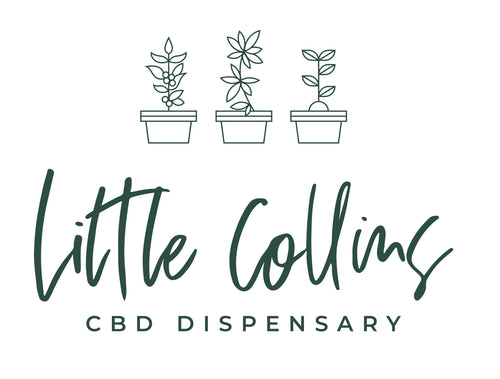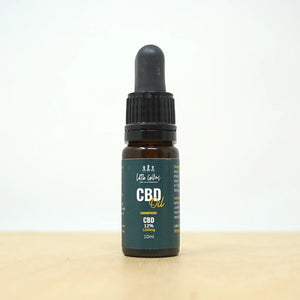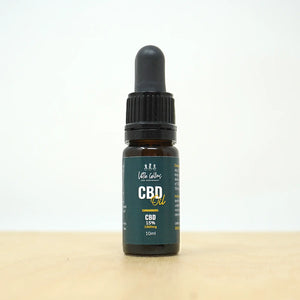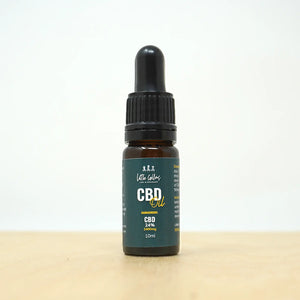Introduction
CBG oil in Ireland has recently gained significant attention within the wellness industry. As interest in CBG oil in Ireland and other hemp-derived supplements continues to grow, many people are curious about its benefits, legal status, and how to use it effectively. This article provides a comprehensive guide to CBG oil in Ireland, its origins, therapeutic potential, and how it fits into the Irish wellness market.
Understanding CBG: The Basics
What is CBG?
CBG, or Cannabigerol, is a cannabinoid found in the cannabis plant. Often called the "mother" of cannabinoids, it’s the precursor to CBD (Cannabidiol), THC (Tetrahydrocannabinol), and others. Unlike THC, CBG is non-psychoactive, meaning it does not produce a "high."
How is CBG Oil Extracted?
CBG oil Ireland products are commonly extracted using CO2 extraction — a method that uses carbon dioxide under high pressure and low temperature to isolate and preserve cannabinoid compounds. This solvent-free approach ensures a high-quality, pure product trusted by Irish consumers.
The Science Behind CBG
Chemical Structure of CBG
While CBG shares structural similarities with other cannabinoids, its distinct interaction with the body’s endocannabinoid system (ECS) makes it unique. The ECS regulates key bodily functions such as mood, appetite, pain, and sleep.
Interaction with the Endocannabinoid System
CBG binds with both CB1 receptors (primarily in the brain and nervous system) and CB2 receptors (mainly in the immune system). This dual interaction contributes to its wide-ranging potential health benefits that make CBG oil an exciting supplement.
Health Benefits of CBG Oil
CBG is being studied for its wide therapeutic potential. Some of the most notable benefits of CBG oil include:
-
Anti-inflammatory properties – May help reduce inflammation in conditions like arthritis and inflammatory bowel disease (IBD)
-
Neuroprotective effects – Potentially beneficial for neurodegenerative disorders such as Huntington’s disease
-
Digestive health – Regulates appetite and supports gut function, which may aid IBS and Crohn’s disease
-
Pain relief – Interacts with pain receptors to reduce chronic discomfort
Refer to this study for more information: Antioxidant and neuroprotective effects induced by cannabidiol and cannabigerol in rat CTX-TNA2 astrocytes and isolated cortexes.
CBG vs. Other Cannabinoids
CBG vs. CBD
Both are non-psychoactive, but CBG is the precursor to CBD. While CBD is more widely known and studied, CBG offers unique benefits that may target specific conditions. Your choice may depend on your wellness goals.
CBG vs. THC
CBG provides therapeutic effects without the “high” that THC produces. It’s also legal in Ireland, unlike THC. This makes CBG ideal for individuals looking for natural support without psychoactive effects.
How to Use CBG Oil
Dosage Guidelines
Start low and increase slowly until the desired effects are reached. Dosage varies by product and personal needs. Consulting with a healthcare professional is advisable for tailored guidance.
Methods of Consumption
CBG oil can be taken in various forms:
-
Sublingual drops – Quick absorption under the tongue
-
Capsules – Convenient for accurate, consistent dosing
-
Topicals – For targeted skin or muscle relief
We provide our customers with a premium Full Spectrum CBG Oil that combines 750mg of CBD and 750mg of CBG. This balanced formula supports inflammation reduction, sports recovery, and focus.
Also available: Alpha Skunk CBG Flower – our hydroponically grown 60/40 indica/sativa strain with a forest-floor aroma and sweet pine flavour.
Explore our full range of CBD oils and CBD flower products available at Little Collins.
Combining with Other Supplements
CBG can be combined with other cannabinoids and supplements for enhanced wellness. Many users pair it with CBD to take advantage of the entourage effect, where multiple cannabinoids work synergistically.
CBG Ireland: Is It Legal to Buy and Use CBG Oil in Ireland?
Yes — CBG oil is legal in Ireland, provided it’s derived from hemp containing less than 0.2% THC. This ensures the product is non-psychoactive and complies with EU regulations.
Pro Tip: Always buy from reputable Irish sources who provide lab testing and legal compliance documentation.
Conclusion
CBG oil is a rising star in the world of cannabinoids, offering potential relief from inflammation, digestive issues, pain, and even neurodegeneration — all without psychoactive effects. With its legal status in Ireland and growing popularity, now is a great time to explore how CBG can support your wellness journey.
At Little Collins, we’re proud to offer high-quality, full spectrum CBG products tailored for the Irish market. Whether you’re just starting out or already a fan of cannabinoids, our range is here to help you feel your best.
Disclaimer
This article is intended for educational purposes only and does not constitute medical or legal advice. Always consult a healthcare professional before starting any supplement, and ensure that your purchases comply with Irish law.
Frequently Asked Questions About CBG in Ireland
Is CBG legal in Ireland?
Yes, as long as it comes from hemp and contains less than 0.2% THC.
What’s the difference between CBG and CBD?
CBG is the “parent” cannabinoid from which CBD is derived. Both offer non-psychoactive benefits, but their effects and focus areas differ.
Where can I buy CBG oil in Ireland?
You can shop premium CBG oil right here at Little Collins CBD.
What is CBG oil good for?
CBG oil Ireland is gaining popularity for its potential health benefits. It is known for its anti-inflammatory and neuroprotective properties, making it useful for managing conditions like arthritis, inflammatory bowel disease, and certain neurodegenerative disorders. Many users also find it helpful for digestive health, pain relief, and supporting overall wellness without the psychoactive effects associated with THC.
Is CBG stronger than CBD?
While both CBG and CBD are non-psychoactive cannabinoids, they have different effects and strengths depending on the condition being targeted. CBG oil Ireland is often described as the "mother cannabinoid" because it is the precursor to CBD and THC. Some studies suggest that CBG may be more potent than CBD in certain areas such as antibacterial effects and appetite stimulation, but CBD has a broader range of research supporting its uses. Choosing between CBG and CBD depends on your specific wellness goals.











6 comments
I tried a hardly products from Tillmans Tranquils – indica gummies and actually liked the overall experience. The gummies have a straighten up know, smooth configuration, and accordant quality. The flavors perceive fundamental, and the portioned servings up it comfortable to choose what works in behalf of you. Their packaging looks premium and everything feels thoughtfully made. A solid brand with products that are enjoyable and reliable.
I tried a not many products from Tillmans Tranquils – https://www.tillmanstranquils.com/products/thc-sex-gummies and really liked the complete experience. The gummies have a deplete b empty know, slick surface, and dependable quality. The flavors feel reasonable, and the portioned servings up it comfortable to on what works in return you. Their packaging looks premium and the whole kit feels thoughtfully made. A downright brand with products that are enjoyable and reliable.